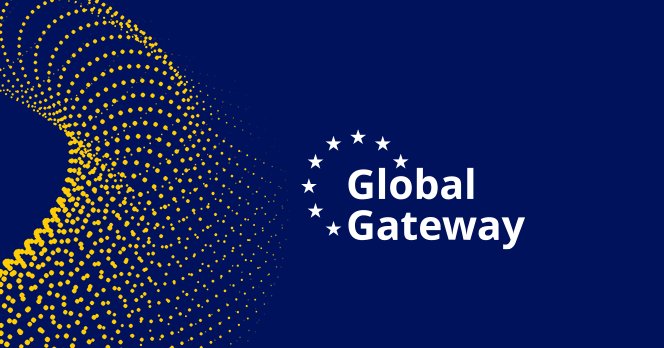The Belt and Road Initiative (BRI - 一带一路) is the epitome of the quest for geopolitical domination in the 21st century. This economic initiative by China officially aims to boost global connectivity and infrastructure by allocating a staggering sum of $3 trillion for the construction of airports, roads, railways, ports, and other vital pieces of infrastructure. However, the plan has been seen as primarily a tool to connect countries, especially poorer and developing countries, to China, while enhancing its geopolitical clout and soft power.
While China has promoted its initiative for eight years, the EU has not launched major geopolitical initiatives beyond its immediate neighbors in recent years. This may be about to change with the launch of the EU’s Global Gateway.
On Dec. 1, 2021, the EU commission announced a plan to allocate 300 billion EUR for its “Global Gateway” strategy, a competing project which would aim to achieve the same aims of developing infrastructure, instead based on sustainability, green agenda, and resiliency. While the funds for this project are modest compared to China’s BRI, the main advantage of the Global Gateway lies in the fact that it could follow higher European standards. Furthermore, the stated goal of sustainable investments could alleviate fears regarding debt defaults or “traps”, which have plagued the BRI since its inception.
Additionally, it seems that there is room for the Global Gateway in economic terms. The consulting company Mckenzie has estimated total infrastructure needs for the years 2017-2035 at almost $70 trillion, which is well above the current available funding.
Nevertheless, some problems are expected which cannot be ignored. Already, African leaders have commented that while China has built trust with its tangible investments over the continent, the EU brings mostly “red tape and lectures”. Based on this, it is clear that if the EU is serious about the strategy, it needs to engage directly with stakeholders and frame the initiative as a multilateral project, albeit driven by European investments, rather than a unilateral one.
As well as this, as the Commission has promised that the project and derived investments will be based on “European values”, the EU must indeed scrutinize allocations and make sure that precious resources are not wasted, stolen, or underutilized. This is also important for preserving the trust of Europeans in the system, and encouraging public support for future larger projects.
Overall, the initiative is a major, and positive, first step. European engagement with the wider world is necessary to our security, as no country, or even a federal power, is sustainable without links through commercial ties and good will. Besides, a more connected future is a prerequisite for the federalist goal of a world federation, and has the potential to improve countless lives by offering opportunities for development and creating quality jobs. Lastly, we cannot forget that we owe moral debts to many of the post-colonial nations, which are lagging in development as a result of colonialism. The Global Gateway strategy, if implemented and expanded, can be a mutually beneficial medium for paying part of this debt and paving a positive path for cooperation between Europe and the Global South.


1. On 15 February 2022 at 07:46, by Hujjathullah M.H.B. Sahib Replying to: EU’s “Global Gateway”, a European approach to geopolitical influence?
Replying to: EU’s “Global Gateway”, a European approach to geopolitical influence?
Definitely it is a case of better late than never here. The EU’s Global Gateway initiative would certainly be welcomed in most parts of Eurasia and elsewhere. However, that African quip “red tape and lectures” would also be valid across the globe. And European values, as defined by even themselves, are not homogenous; while Scandinaevia talks and delivers on welfare, France verbally mimics welfare but delivers slums albeit urbanized ones. At this rate taking on China’s BRI would be a challenge indeed for Europe, even at home China can prove that it has delivered millions out of basic poverty and often doing well across the globe as a result of it !
Follow the comments: |
|
